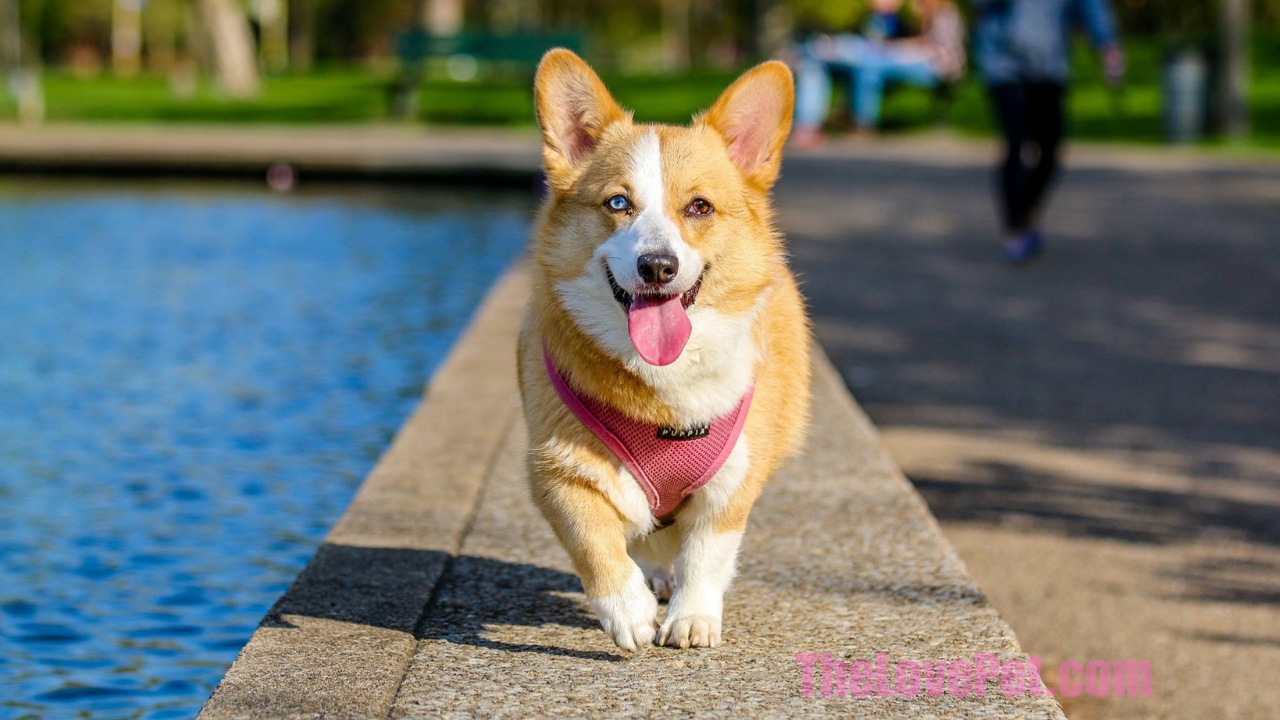Pigs are intelligent, social, and affectionate animals that can potentially make good pets for some people. Here are some key characteristics of pigs as pets:
Intelligence
Pigs are considered one of the most intelligent domestic animals. They can be trained to do tricks, walk on a leash, and even use a litter box. Their intelligence means they need mental stimulation and activity to prevent boredom and destructive behavior.
Sociability
Pigs are very social animals. They thrive on companionship and interaction with their owners. Pigs left alone can become depressed or destructive. Having at least two pigs allows them to fulfill their social needs.
Affectionate Nature
Despite their large size, pigs can be very affectionate pets. They often seem to crave human interaction and enjoy being petted and scratched. Pigs bond strongly with their owners.
Challenges of Keeping Pigs
While pigs can make loving pets, there are some challenges to keeping them:
Size & Space
Pigs grow rapidly to 200-700 lbs depending on breed. They require a lot of space and strong housing to accommodate their size. Outdoor access is ideal. Indoor pigs still need room to roam.
Specialized Diet
Pigs need a specialized high-fiber, low-protein diet. They cannot eat regular dog or cat food. Owners must monitor their diet to prevent obesity.
Vet Care
There are few vets specialized in pig care. Owners should locate a knowledgeable vet before acquiring a pig. Routine hoof trimming is also needed.
Permit & Zoning Requirements
Many areas prohibit swine from being kept as pets. Owners should research local laws. Pigs may require special permits depending on zoning.
Is a Pig Right for You?
While pigs can make wonderful pets, they require specialized care and commitment. People interested in pet pigs need ample space and time to care for these large, intelligent animals. With proper handling though, pigs can be extremely affectionate and social members of the family.
More on the Intelligence of Pigs
Pigs are considered one of the most intelligent domesticated animals, even smarter than dogs. Their intelligence is demonstrated through their ability to learn commands, solve problems, and understand abstract concepts. Pigs have excellent long-term memories and can remember learned behaviors for years.
Training Pigs
Pigs can be housetrained and taught basic commands like sit, stay, and come. More advanced behaviors like rolling over, dancing, and playing instruments can be taught through positive reinforcement training. Their intelligence makes training pigs easy for dedicated owners.
Social Needs of Pet Pigs
As social herd animals, pet pigs need frequent interaction and companionship. A single pig left alone for long periods will get depressed and destructive. Pigs thrive when kept with another pig friend. Even with human attention, they should not be kept alone.
Proper Pig-Proofing
Since pigs are inquisitive and intelligent, they need stimulation. Bored pigs will root, dig, and chew excessively. Providing toys and puzzles and pig-proofing the home is important to prevent destructive behaviors.
Lifespan of Pet Pigs
Cared for properly, pet pigs can live 10-20 years which is a long commitment. Having a plan for their care into old age is important before acquiring a pet pig. Their long lifespans and bonded relationships mean re-homing pigs can be difficult.
#FAQ #Update #AdditionalContent
1. What are the three types of pigs typically kept as pets?
2. How long can pig breeds commonly kept as pets, like potbellied pigs, live with proper care?
3. Can pigs be trained to walk with a harness and leash, similar to dogs?
4. What should you consider regarding the legalities of keeping a pet pig before adopting one?
5. What is the reality behind “micro-mini” pigs, and why is under-feeding them a concern?
Pigs can be amazing pets as they are smart, curious, and affectionate creatures that can be kept indoors or out.
Types of Pigs Kept as Pets
There are eight major breeds of swine commonly raised in the United States. These different breeds are used for various applications based on their physical characteristics and qualities. However, there are only three types of pigs typically kept as pets including the pot-bellied pig, miniature pig, and kune kune pig.
Pot-Bellied Pig
The pot-bellied pig is one of the most popular breeds of pigs due to its relatively small size compared to larger farm pigs or hogs. Pot-bellied pigs are known for their curiousness, activeness, and affectionate personality. They are also easier to train than many other pig breeds. Most pot-bellied pigs are dwarf and ultimately grow to the size of a medium to large-sized dog.
Miniature Pig
Small or miniature pigs are also commonly kept as pets. Also referred to as teacup pigs, these animals require a lot of interaction and attention to train them properly. Due to their social nature, it is recommended to keep at least two miniature pigs so that they always have a companion, even when you’re away from the home.
Kune Kune Pig
The kunekune pig, or ‘kunekune,’ is a breed typically used for meat but can also make good pets. These small, hairy pigs originate from New Zealand and are known for their adorableness and friendly personality. Kune kune pigs can also be found in a variety of colors, from black and white patterns to gold, brown, and black. Unlike other pigs which can be too large for the average home, kune kune pigs can often live and play indoors.
Frequently Asked Questions
Before adopting a pet pig, it is important to consider if you’re prepared and responsible enough to handle the unique care and attention that a pig requires. Here are some commonly asked questions about owning a pig:
– Pig breeds commonly kept as pets, such as potbellied pigs, can live an average of 12 to 15 years. Proper care and weight management can help extend your pet’s life. Avoid having your pig become obese, provide adequate stimulation, and allow for regular physical exercise. Your pet pig should also receive regular veterinary care.
– Just like cats and dogs, pigs can bite if put into a stressful or fearful situation. Although pigs are known to be gentle by nature, they can become emotional and even territorial. Some pigs will develop aggressive tendencies, especially when competing for attention or food.
– Similar to a dog, it is important to teach your pet pig good manners and to establish yourself as the most dominant member of the family. Also similar to dogs, pigs can be trained to walk with a harness and leash. Pigs are curious creatures and enjoy walking and smelling things along the way. Pigs are also motivated by many of the same things that dogs are, including treats.
– Pigs can be very affectionate pets but not in the same way a dog is. Don’t expect your pet pig to jump in your lap and lick your face. The affections of a pet are often more subtle. They usually do not like to be picked up but do like to be rubbed, scratched, and massaged. Many pet pigs also enjoy cuddling with their owners on the sofa or in the grass.
– Many people worry about the legalities of keeping a pet pig. Each city and county have its own zoning laws that pertain to what types of pets can be legally kept. Some cities prohibit their residents from keeping animals like swine in residential areas. Before adopting a pet pig, check with your local homeowner’s association, city, and county to determine if keeping a pig is legal.
Concerns About Pig Size
It is important to remember that pigs can get quite large. Even smaller varieties like the pot-bellied pig can grow to weigh between 80 and 160 pounds on average. Miniature pigs will also continue to grow until they reach maturity, which occurs around three to five years of age. However, pet pigs weigh nowhere near as much as farm pigs which can reach up to 600 to 1000 pounds. With the popularity of keeping pigs as pets continuing to grow, many breeders are coming forward with “micro-mini” pigs that generally weigh under 50 pounds. In reality, there is no such thing as a micro-mini pig. Instead, breeders are able to get these pigs so small through under-feeding and poor nutrition. Without adequate nutrition, pigs can develop an array of health problems.
Keeping a Pig as a Pet
Rescuing a pig can be a very fulfilling and rewarding experience. Pigs can make great pets for the right owners who possess the adequate space and resources to care for these animals properly. Perform extensive research and consider your living conditions and time restraints before making a decision to adopt a pet pig.
#FAQ #Update #AdditionalContent
1. Which pigs are popular as pets?
2. How big can ‘micro pigs’ grow?
3. What do pet pigs eat?
4. Should pigs be kept as pets?
5. What are the challenges of owning a pet pig?
In recent years, the popularity of pigs as pets has skyrocketed, with many people opting to bring ‘mini’ or ‘micro’ pigs into their homes as companion animals. The intelligence and affectionate nature of pigs make them delightful and rewarding companions, often considered quite cute. This trend has been further fueled by celebrities like Paris Hilton, Victoria Beckham, and Ariana Grande, who proudly showcase their porcine pets, with one even making a cameo in a music video.
The Popularity of Pet Pigs
Pigs, surprisingly, can be trained much like dogs. They can be house trained, walked on a lead, and even taught basic tricks. However, the surge in pig ownership has also led to an increase in the number of pet pigs ending up in rescues. Many well-meaning owners find themselves struggling to meet these animals’ complex needs, resulting in unfortunate consequences, including the sale of pet pigs for slaughter.
Popular Pig Breeds as Pets
While there is no official ‘miniature pig’ breed, certain pig breeds are considerably smaller than typical domestic pigs, making them popular as pets. The pigs often marketed as ‘micro’ pigs are typically potbellied pigs, with Vietnamese Potbellieds and Royal Dandies being among the most popular choices. Various breeds are sold as ‘teacup’ or ‘miniature’ when bred to smaller sizes.
Size Matters – How Big Can ‘Micro Pigs’ Get?
Despite claims that ‘micro pigs’ won’t grow larger than a medium-sized dog in terms of height and length, the reality can differ significantly. Even the smallest breeds usually reach weights of around 50-70kg, and overfeeding can result in even more substantial growth. Some unethical breeders sell standard-sized pigs as ‘micro pigs’ when they are young, leading to owners facing the challenge of caring for a 300kg pet pig within a year.
Dietary Needs of Pet Pigs
Like all pigs, pet pigs are natural foragers, spending a significant part of their day seeking out roots, bulbs, insects, and small rodents for their meals. To maintain their health and provide mental stimulation, pet pigs require a diverse and nutritious diet, as well as an outdoor area for foraging. However, this foraging instinct can lead to conflicts with human housemates, as pigs may overturn bins or open containers in pursuit of food.
Should Pigs Be Kept as Pets?
While pigs can make wonderful companions, they come with specific needs that can be challenging to meet. Owning a pet pig involves a significant time and financial commitment. Pet pigs are generally expensive to purchase, and the costs associated with their care, outdoor space maintenance, and potential vet bills can add up quickly.
Additionally, pigs’ intelligence makes them demanding and headstrong animals. Boredom can lead to destructive behavior, and pigs’ hormonal fluctuations require spaying or neutering to prevent aggression. There are also strict regulations governing the care, identification, and movement of pet pigs, including the need for a walking license.
The Importance of Responsible Breeding
While there are reputable pig breeders, the industry has issues that can mislead buyers and harm pig welfare. Many buyers are deceived about their pig’s age or breed, resulting in unexpected growth. Some breeders even underfeed pigs to keep them small, leading to health problems and shortened lifespans. Inbreeding is another concern, causing various health issues.
In conclusion, owning a pet pig can be a rewarding but challenging experience. Prospective pig owners should be well-informed and prepared for the commitment, both financially and in terms of care. Responsible breeding practices are crucial for the well-being of these animals.









